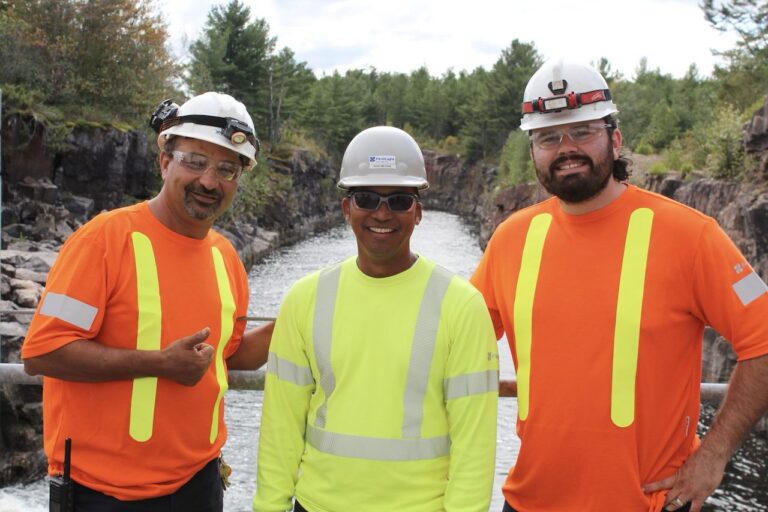Tuesday, September 23, 2025
Canada’s workforce is undergoing a generational transformation—and with it, a seismic shift in workplace values. Generation Z, born between 1997 and 2012, is now the third-largest generation in Canada, and by 2030, this cohort is expected to make up nearly 30 per cent of the national workforce. The rise of Gen Z in the workforce signals a profound transformation in how Canadian businesses must think about talent, culture, and the future of work.
Gen Z is entering the workforce with a clear mandate: climate action is non-negotiable and they’re looking to work for employers who walk the talk on sustainability. For companies, this means that environmental responsibility is a talent strategy imperative.
According to Deloitte’s 2024 Gen Z and Millennial Survey, nearly 75 per cent of Gen Z respondents say an organization’s societal impact—including environmental efforts—is a key factor when choosing where to work. Two in ten have already changed jobs or industries to align with their environmental values, and another quarter plan to do so in the future.
What we are witnessing in real-time is a generational shift. Gen Zer’s are digitally savvy, socially conscious, and deeply skeptical of greenwashing. They expect transparency, science-based targets, and real progress—not vague promises.
At Schneider Electric, we’ve seen this shift firsthand. Our net-zero roadmap, validated by the Science Based Targets initiative (SBTi), aims to limit the company’s carbon emissions by implementing energy management and industrial automation solutions and developing programs and offers to help our customers and suppliers do the same.
To date, we have transformed 154 Schneider Electric facilities into Zero-CO2 sites—an important step in decarbonizing our operations. We’ve also helped our customers avoid nearly 700 million tonnes of CO₂ emissions since 2018. As well, nearly half of our top 1,000 suppliers have also reduced CO₂ emissions from their operations.
The end of greenwashing
The era of unchecked environmental claims is over. In June 2024, Canada amended the Competition Act to explicitly target greenwashing, requiring companies to substantiate environmental claims with proper testing. This legal shift, combined with new mandatory climate disclosures for large federally incorporated private companies, is raising the bar for corporate transparency.
These regulatory changes are timely. As companies face growing scrutiny from investors, regulators, and employees alike, the cost of inaction—or worse, deception—is rising. But for forward-thinking organizations, this is an opportunity to lead. There’s guidance available to learn about greenwashing avoidance best practices.
Transparency builds trust. Companies such as Schneider Electric publish detailed ESG reports, engage employees in sustainability initiatives, and provide clients with tools to track and reduce their environmental impact. This level of openness sets companies apart in the competitive talent market.
Embedding sustainability into strategy
Sustainability can’t be siloed. It must be embedded into every aspect of business strategy—from operations and innovation to culture and leadership. This requires more than a sustainability department; it demands executive-level commitment.
Businesses must make sustainability a core pillar of their innovation strategy. Sustainability is the next critical lever for transformative change. Studies consistently show that companies with strong sustainability practices outperform their peers in resilience, innovation, and long-term profitability. According to Gartner®, business transformation that embraces sustainability models can drive over 30% revenue within a 10-year period. In short, sustainability isn’t a cost—it’s a catalyst to drive business performance.
A perfect storm of pressure and opportunity
The urgency of this moment is undeniable. Canada’s new climate disclosure rules are taking effect. Greenwashing is now a legal liability. Gen Zs are flooding into the workforce with unprecedented expectations.
At the same time, companies are in their mid-year ESG planning cycles—making this the ideal moment to reassess strategies, engage employees, and align business goals with climate action.
For HR and talent leaders, this is a call to action. Embedding data-driven sustainability practices into your employer brand, operations, and leadership culture isn’t just the right thing to do—it’s the smart thing to do. It’s how you attract the next generation of changemakers. It’s how you future proof your workforce, and it’s how you stay competitive in a rapidly evolving world.
The future belongs to the sustainable
The climate crisis is the defining challenge of our time—and Gen Zs know it. They’re not waiting for change; they’re demanding it, and they’re choosing to work for companies that match their urgency, their values, and their vision for a better world.
For Canadian businesses, the message is clear: sustainability is not optional; it’s a talent imperative. It’s a strategic advantage, and it’s the key to thriving in a future shaped by climate, technology, and generational change.
At Schneider Electric Canada, we’re proud to be part of this transformation. But we know we can’t do it alone. It’s time for all of us—business leaders, HR professionals, and other decision-makers—to step up, lead with purpose, and build a workforce that’s ready for a sustainable future.

Frederick Morency is Vice President, Sustainability, Strategic Initiatives and Innovation at Schneider Electric Canada.
Featured image credit: Getty Images












